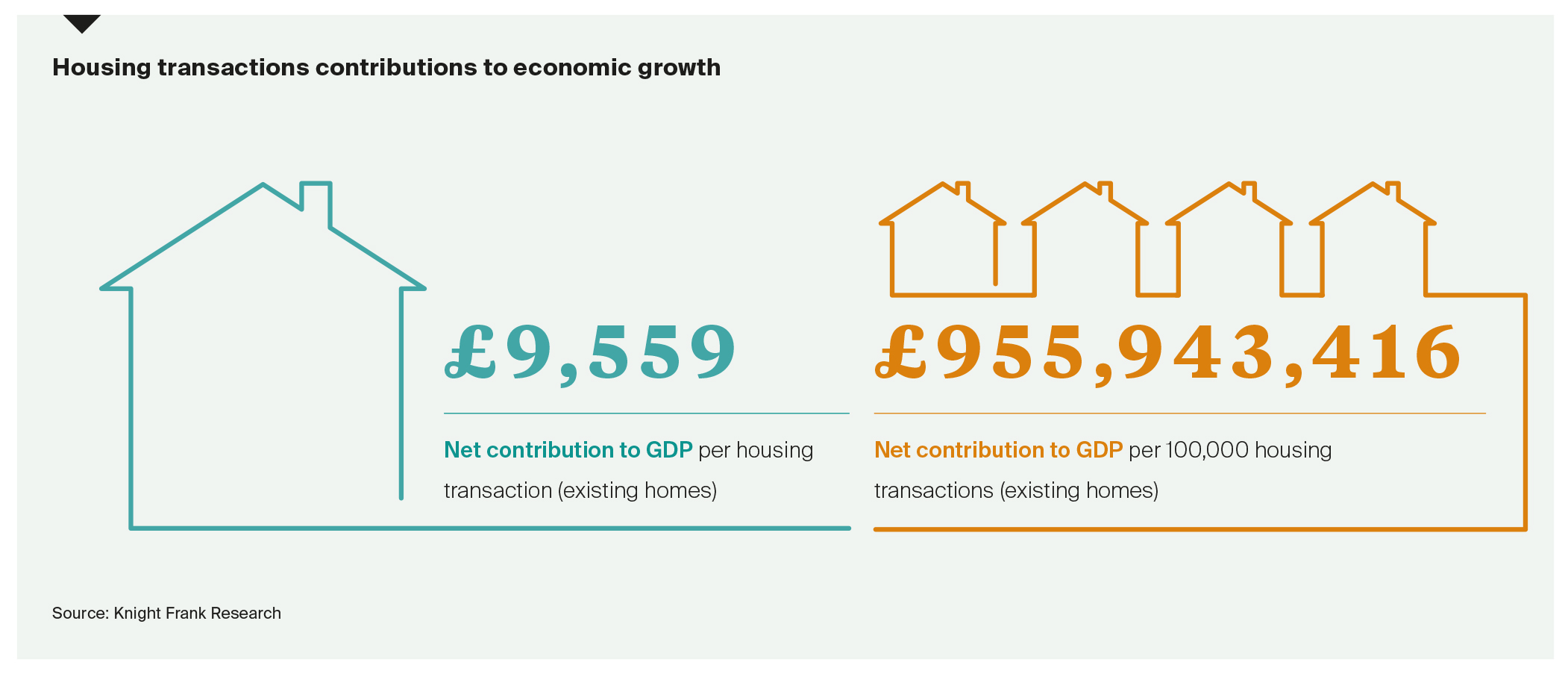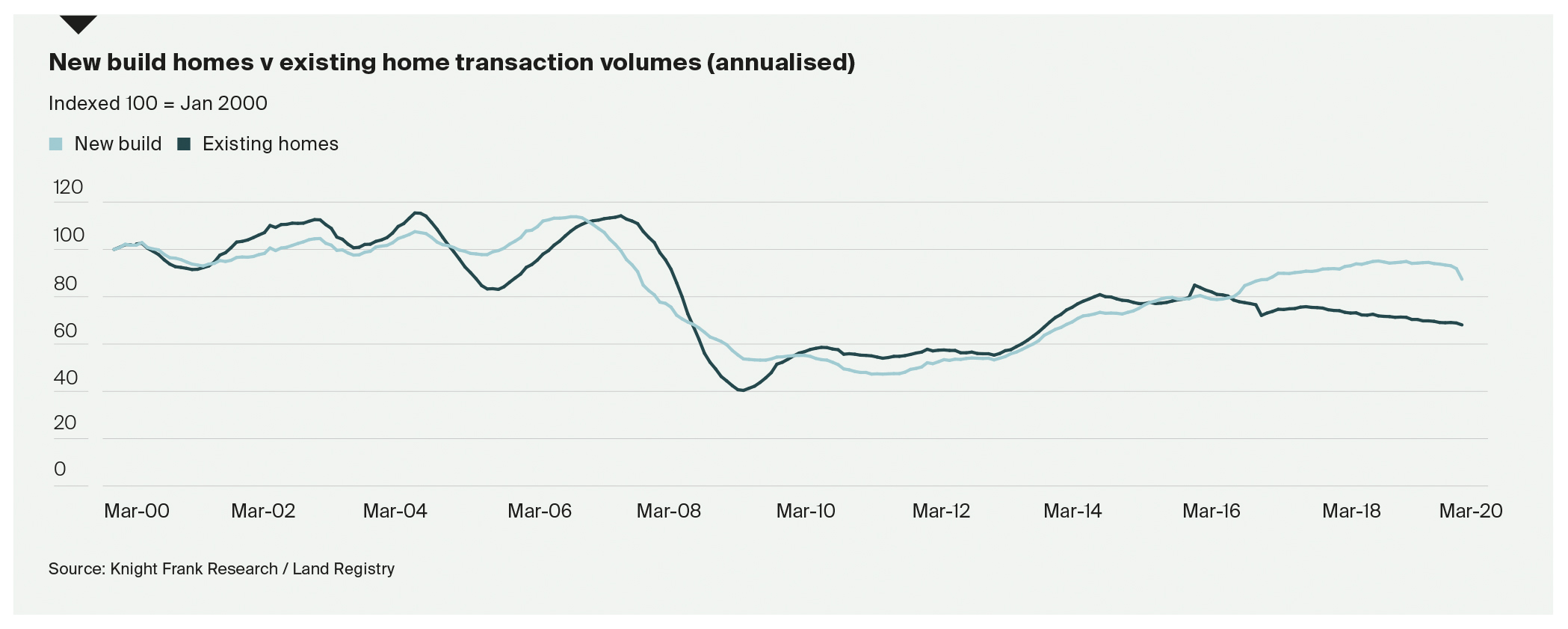The important contribution that the housing market makes to the UK economy should not be underestimated.
While there is no single source of data providing comprehensive information about the total economic impact of a housing transaction, fresh analysis from Knight Frank, produced in partnership with the Home Builders Federation (HBF), attempts to quantify that figure.
It shows that for every resales housing transaction that takes place the economy benefits by around £9,559 on average. Scaling that figure up means that for every 100,000 housing transactions, there is a net impact of almost £1bn.
In addition, more than 11,500 jobs are supported either directly or indirectly by these transactions.
The existing stamp duty holiday is indicative of the fact that the government recognises the positive contribution a liquid housing market can have on supporting the wider economic recovery, according to the report.
In fact, the Treasury last month claimed the move had already helped “protect hundreds of thousands of jobs, benefitting businesses across the housing supply chain and beyond”.
The report acknowledges that the factors which have underpinned the recent increase in housing market activity will not last indefinitely.
It points out that the economic mood is expected to turn more negative as the government’s furlough scheme is unwound from next year.
Meanwhile, the scheduled end of the stamp duty holiday, scaling back of the Help-to-Buy equity loan scheme, as well as with the introduction of higher taxes for overseas purchasers, could weigh on activity levels post-March.
What happens with Covid-19 will, of course, be the deciding factor, but given the clear multiplier effect moving house can have on the economy, keeping the housing market moving could play an important role in supporting any economic recovery, according to Stewart Baseley, executive chairman, HBF.
He commented: “With Help to Buy scheduled for full withdrawal in two years, now is the time for a proper discussion about the importance of freeing up the home mover market. Doing so will allow for more housing opportunities for all households, unlock greater labour mobility and provide the economy with a boost when it is most needed.
“The housing market and the new build sector in particular bounced back very strongly in spring after lockdown. Protocols are in place that have allowed high build levels and sales rates to be safely maintained, enabling thousands of households to buy the home of their dreams. Looking forward, house building and the wide range of jobs that the housing market supports, as well as the huge economic benefits that transactions generate can all play a major part in building and sustaining an economic recovery.”




Simple answer: Extend Help to Buy to second hand homes, thus use the one ‘Govt assisted (H2B) buyer’ to initiate chains and to expand demand across the entire market, also reinstate SDLT but at lower levels, ie 1% over £250,000 to say £1.0m and then say 2% over £1.0m.
Agents need volume and the moving process stimulates so much in the wider economy.
You must be logged in to like or dislike this comments.
Click to login
Don't have an account? Click here to register